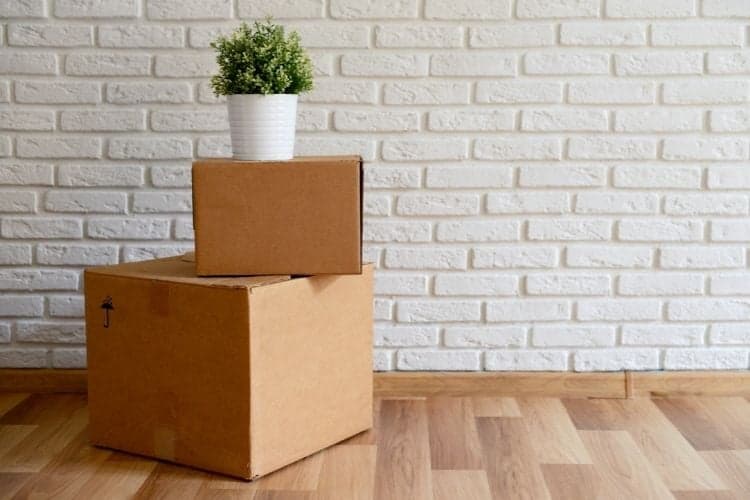Student Accommodation Guide: Answering Your FAQs
01 December 2021 • 8 min read
Student Accommodation Guide: Answering Your FAQs
Got a question about house hunting? We’ve put together the answers you need about student accommodation 👇
Sure, starting your university course is exciting. But moving to a new student home is the bit that we all get the most excited about. Finally, you’ve got a space to call your own! Just think of the decoration, the personalisation, the memories that will be made in your new student pad…
However, you might find yourself puzzled at some of the common questions that students have about their accommodation. These are the little things you don’t tend to learn at school, and you only really find out about once you’ve left home.
To save you from frantically Google searching an obscure abbreviation on your washing machine or fumbling for your meter in the dark, we’ve put together the following blog. Read on for the most frequently asked questions about student homes:
💸 "What does PPPW mean?"
PPPW means “Per Person Per Week”. This is an acronym used by landlords and letting agents to help residents to budget better, but if you don’t know what it means, it can make calculating the costs of rent a little confusing. Plus, in most cases, accommodation that has the rent marked as PPPW means the property has multiple bedrooms.
🔥 "What is gas measured in?"
It depends on what kind of meter you’ve got. If you’ve got a modern digital gas meter, it’ll usually measure gas by the metric system. In this case, your gas reading should be provided in cubic metres (m3). If your gas meter is a digital imperial meter or a dial meter, you’ll provide a reading in cubic feet (ft3.)
👀 "How do I read my meter?"
If you don’t have gas and electricity covered as part of your rent, it’s important to give regular energy readings to your providers before your bill comes out so that the costs accurately reflect your energy usage.
Electricity meters
Modern electricity meters are known as digital ‘single rate’ meters. You’ll see the phrase ‘single rate’ written on the front. To take a reading, simply record the numbers from left to right including the zeros. If your meter says ‘multi rate’ or ‘multi-phase’, you’ll need to provide two readings – one for day time and one for night time. The meter will have two readings available, and you’ll need to provide both to your energy supplier.
Gas meters
If you’ve got a digital gas meter, taking a meter reading is as simple as recording the five numbers from left to right on the digital screen (including the zeros.) You should not include any of the numbers after the decimal point or numbers in red. If you’ve got an old-fashioned dial meter, you’ll need to submit your reading by providing your supplier with the numbers indicated on the dials from left to right, and ignore the red dials.
🕵️♂️ "Where is the meter located in my student accommodation?"
Gas meters are usually located within a mounted box outside of your property, but some homes have them stored under the kitchen sink, in a hallway cupboard, in the cellar or in a utility room of a communal area of the building if you’re in a flat block. If you need a hand finding this, we recommend asking your letting agent or landlord.
📣 "How do I book student house viewings?"
A property may look perfect online, but it’s always best to see it in person so you and your future housemates are sure it’s right.
On UniHomes, you can book a viewing by clicking the orange button on any property listing. The letting agent will get back in touch ASAP to organise a viewing. If you’re not available to view it, speak to the lettings company about organising a virtual viewing or have someone you trust go in your place.
When enquiring, it’s a good idea to clearly state your requirements so you don’t waste your time on a viewing. For example, if you need lift access and the building only has stairs, you’ll want to know in advance.
Remember, you don’t need to make your mind up at the viewing. This is an important decision, so it’s not something to be rushed. Before you book to view accommodation, make sure you run through our Pre-Viewing Checklist.
💷 “How much is student accommodation typically?”
Student accommodation rent varies depending on the city, as well as the different types of accommodation available.
Based on a 2021 survey, it was found that for purpose-built student accommodation in the UK, it would cost a student £166 on average per week.
In comparison, an ensuite room in the private accommodation sector would set you back on average just £155 per week, with a studio averaging at £228 per week.
Student accommodation in London came out on top in the pricing, with students paying £212 per week on average for uni accommodation, and and on average £259 per week in the private sector.
To view the cost of accommodation in your area, search your city here.
📊 “Does student finance cover accommodation?”
When it comes to student finance, what it covers depends on which loans you’ve taken on. Student loans tend to cover your tuition fees, with other loans then being available for other outgoings. If you have any questions about student finance, we recommend you talk to your finance provider.
✉️ “When should I apply for student accommodation?”
The transition to uni life can be exciting and many are eager to get student accommodation sorted straight away. When it comes to when you should actually apply for student accommodation, it varies depending on the university, but typically you can start looking once you’ve accepted an offer.
Once you’ve accepted a university offer, we recommend you start looking as soon as possible as university owned student accommodation such as student halls tend to work on a first-come-first-served basis. In addition, privately rented accommodation is likely to get booked up pretty quickly with students in the same position as you.
To start browsing student housing, search your city here.
🏡 “Do I need to take out contents insurance?”
Sadly, 36% of students have been the victim of robberies in a shared house or university halls. Contents insurance is designed to cover residents for loss or damage to their property or belongings.
It’s best to check with your landlord whether you’re covered and, if so, how much your contents insurance covers you for. If there’s no contents insurance included, make sure you get some in place to protect your possessions should the worst happen. Make sure to browse the market and find a cheap deal rather than going for the first you find.
📆 “Do I need to move out during the holidays?”
Your tenancy contract will be set to a fixed length of time and will usually finish at the end of the academic year. During that time, your student home is yours whenever you need it. When your tenancy agreement is up, you might still be able to pay a little extra upfront to stay in the property over the summer. Some universities offer temporary accommodation to students who want to stay over summer, so it’s worth checking with student support staff in advance.
🔥 “How do I use the boiler controls?”
Let’s face it – we could all do more to minimise our carbon footprint, and heating controls are an effective and easy way to do that. That being said, most of us don’t come to uni equipped with first-hand knowledge of how boilers work.
There are two types of boiler controls: timers and temperatures. If your boiler has a thermostat control for the radiators and hot water, you can use these to help your boiler operate as efficiently as possible. We advise setting your boiler temperature to 82 degrees Celsius in winter (between medium and high) and around 65 degrees Celsius in the warmer months. You can always adjust as necessary if it’s too hot or not warm enough.
📺 “Do I need to get a TV licence?”
Unfortunately, yes. If you plan to watch any TV programmes live on any online TV service like Amazon Prime, ITV Hub, BBC iPlayer or All 4, you’ll need to be covered by a TV licence.
While some student lettings companies will include your costs for the licence as part of your rent (like UniHomes!), that isn’t the case across the board. Ask your landlord or lettings agent when you move in and they’ll let you know either way. If you need to apply for a license, you can do so here.
💰 “Are my bills included in the rent?”
At UniHomes, all properties are advertised with bills included. That means your gas, electricity, water, internet and TV licence are allowed covered in your cost, alongside your rent.





